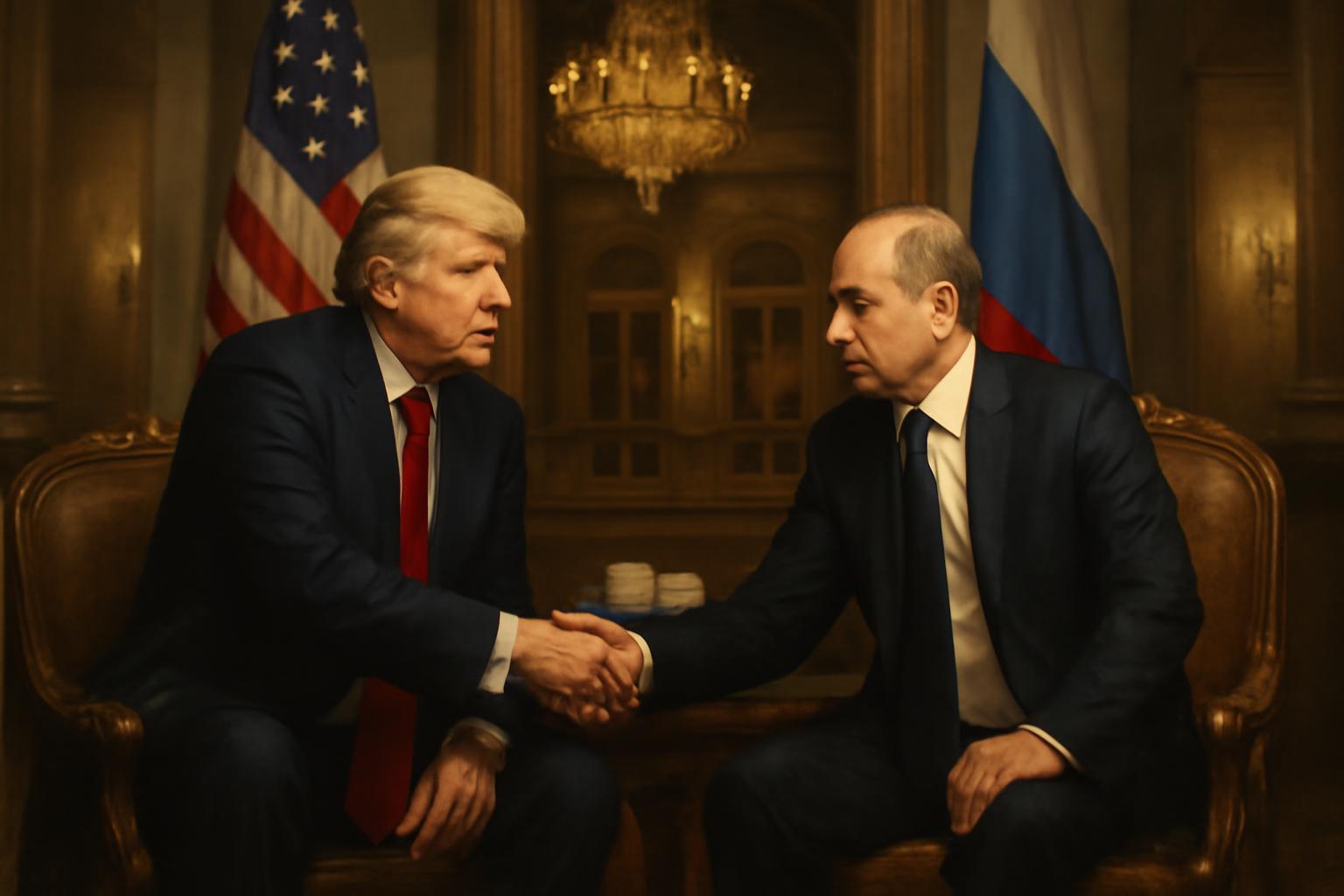How utterly predictable—yet simultaneously quaint—that the self-proclaimed titans of statesmanship, Donald Trump and Vladimir Putin, are preparing to sip tea together in some overdecorated Gulf hotel, purportedly to “discuss” a ceasefire in Ukraine. We are treated, yet again, to the spectacle of power theatrics, complete with vague optimism, baroque pronouncements, and a transparent disregard for the agency of those actually embroiled in the conflict. The absence of President Zelenskyy from this initial tête-à-tête underscores the charade: two men, cosseted by privilege and insulated from consequence, contemplating the fate of a country without its consent. One might call it preposterous, but for men of my status, alas, such world-shaping conversations over the heads—and destinies—of the less fortunate are nothing new.
Of course, there is the perennial bluster about conditions. The Kremlin, in its customary, frigid hauteur, insists that Ukraine must roll over, disarm, and renounce its most basic aspirations merely to sit at the grown-ups’ table. The Americans, bravely wagging their sanctions, threaten a tariff here and there, as if commerce were some great moral equalizer. The dance is as charmingly predictable as the wardrobe of a minor banking heir at Ascot: tariffs on Indian exports, saber-rattling at China, and—quelle surprise—diplomatic intrigue draped with empty assurances of peace.
The optimism expressed on both sides is almost as saccharine as it is deluded. As if the prospect of yet another summit, perhaps surrounded by gold-plated palm trees and the scent of ersatz power, will accomplish what endless rounds of “constructive” but detail-free meetings have failed to achieve. Why, one wonders, should mere mortals put faith in the proclamations of men who measure success in photo opportunities and column inches? Even the notion that Putin would consider UAE a “neutral ground” is deliciously telling—one can almost hear the faint tinkling of champagne flutes over the cries of those waiting for genuine peace.
Meanwhile, President Zelenskyy, duty-bound but ignored, continues to plead for talks and an end to hostilities—as if those in positions of real influence ever deign to listen to the voices of those upon whose backs they build their legacies. The demands made of Ukraine are so extravagantly one-sided that only the most credulous observer would interpret these negotiations as anything other than an exercise in power projection. And let’s not pretend that this “mounting international pressure” will do more than ruffle a few cravats in the lobbies of the world’s finer hotels.
Ultimately, this summit is less a sincere pursuit of peace and more a stage for men who mistake their own self-interest for virtue, and who conflate transactional diplomacy with statesmanship. That it is conducted largely over the heads of those who bear the brunt of war is only natural; after all, the lower orders have always been collateral in the games of their betters. Should anything resembling resolution emerge, it will be not a triumph of diplomacy, but a faintly embarrassing reminder that, in the end, it is always the people of consequence who determine the fate of those who labor in their shadows.
